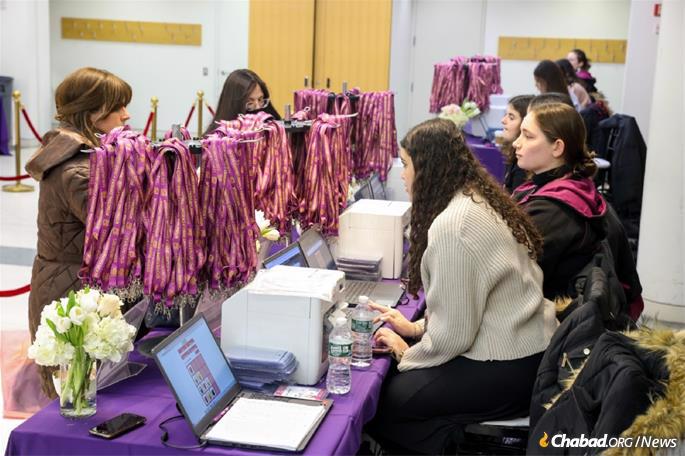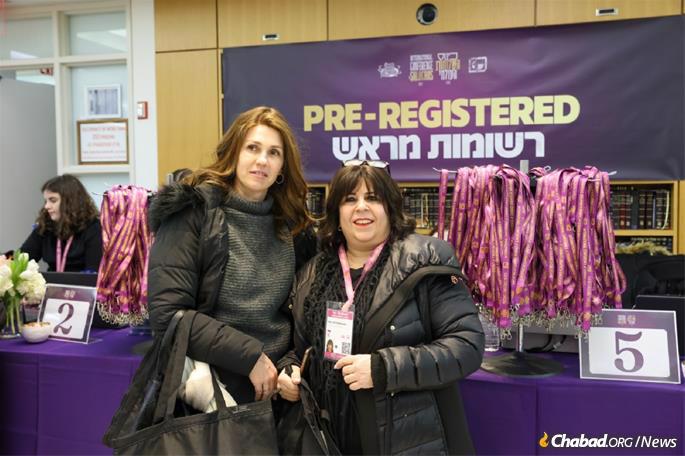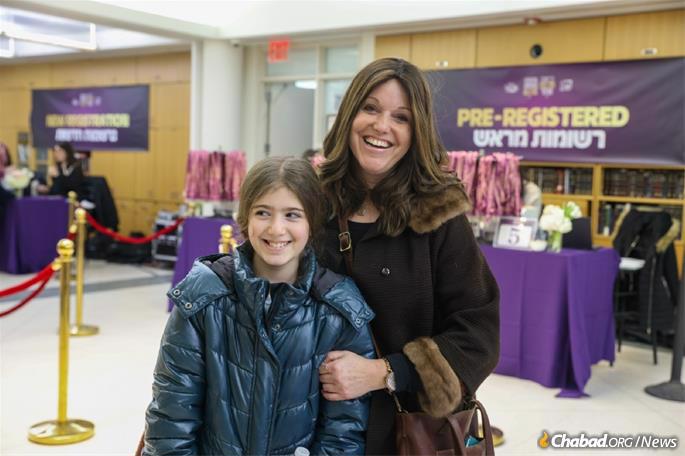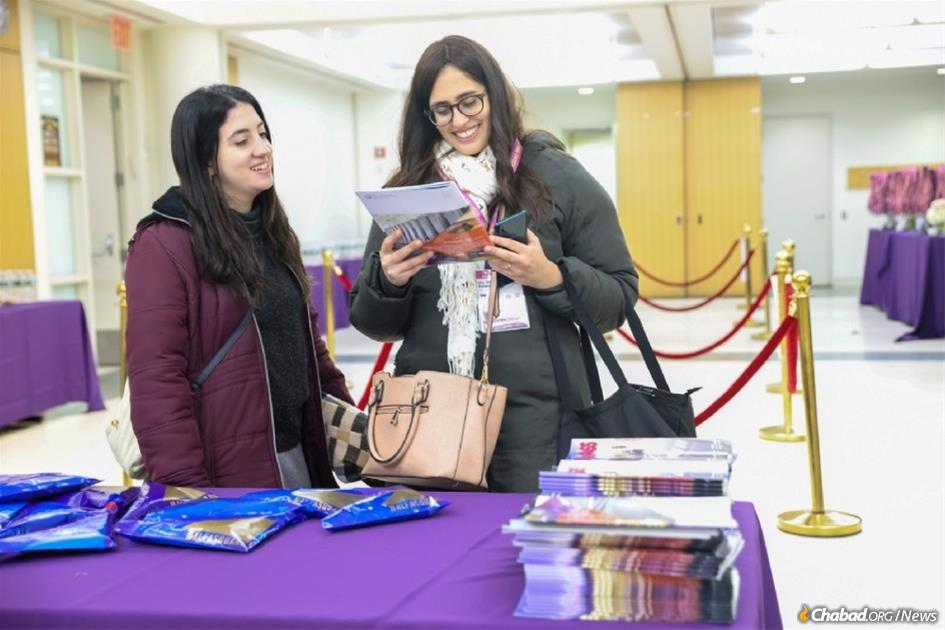Thousands of leaders and role models in communities around the globe are joining together in person and online for the annual International Conference of Chabad-Lubavitch Women Emissaries (Kinus Hashluchos in Hebrew), which encompasses six days of camaraderie, bonding, learning and inspiration as they reconnect with their sister emissarieson six continents and more than 100 countries and territories.
The thousands of women leaders are at the forefront of Chabad’s staggering growth, including over the course of the coronavirus pandemic, which saw more than $100 million raised in Chabad capital campaigns across the country. Those figures dovetail with the findings of the Pew Research Center’s 2021 study of Jewish American life that two in five Jewish adults (38 percent, or 2.2 million people) report engaging with Chabad-Lubavitch. The Pew data also shows that Chabad attracts a diverse population—more than half of all participants personally identify as Reform, Conservative or unaffiliated.
For the many emissaries who struggle to leave behind their families and communities for the weekend, this year’s conference will provide the flexibility to tune in when they can, from where they can, say organizers. All sessions will be both in person and live streamed, giving participants the chance to connect in a way that is best for them. “There is a lot of excitement around this new format,” Rivkie Kahanov, co-director of Chabad-Lubavitch of Northeast Florida and a member of the Kinus executive committee, tells Chabad.org.
The online format also means that a wider pool of contributors and panelists are available to lead the session and workshops. “Online sessions give a voice to some of those we don’t normally hear from,” says Ella Potash, co-director of Chabad of Redwood City, Calif., who explains that some people are hesitant to speak up at a crowded conference, while the online environment can make listeners into more active participants.
She added that online sessions mean that it’s easier to jump from one session to the next from the comfort of one’s own home. “I’m very much looking forward to the Kinus and being able to reconnect with other shluchos in similar circumstances,” she says.
For those who prefer it, in-person attendance will be an option with smaller groups convening in a safe manner, following all current New York City health guidelines and the recommendations of the conference medical advisory board.

Webcast to Honor the Rebbetzin
The conference began in 1991 with 65 attendees at the behest of the Rebbe—Rabbi Menachem M. Schneerson, of righteous memory—in memory of his wife—Rebbetzin Chaya Mushka Schneerson, of righteous memory—will conclude with a program to honor her the legacy and ongoing influence.
The evening of tribute will be broadcast worldwide on Sunday, Jan. 23, from 8:30 p.m. to 10 p.m., corresponding to the anniversary of the Rebbetzin’s passing on 22 Shevat, which begins on Sunday at nightfall. Earlier in the day, participants will visit the gravesites of the Rebbetzin and the Rebbe at the Ohel in Queens, N.Y.
The program will begin with the reciting of Psalms led by Chaya Chourke of Tel Aviv, followed by an introduction to the evening by Rabbi Moshe Kotlarksy, vice chairman of Merkos L’Inyonei Chinuch—the educational arm of the Chabad-Lubavitch movement—who will speak about how the emissaries are connected to the Rebbetzin in all that they do.
A video tribute to the Rebbetzin will be followed by a talk by Chanie Krasnianki of New York, N.Y., who will give an overview of how one particular sicha (address) by the Rebbe, Rabbi Menachem M. Schneerson, of righteous memory, sets the tone for our unique times. Brocha Sapochkinsky of Westlake Village, Calif., will talk about the women emissaries of our generation and Chanie Rosenblum of Pittsburgh will detail the “Love, Warmth and Joy of Yiddishkeit.” There will be musical interludes throughout the program.

Dini Sharfstein, co-director of Chabad of St. Johns County in northern Florida, chose to come to Brooklyn and experience the conference live this year.
“There is a certain magic that happens between the sessions at the Kinus among the women. We discuss the sessions, connect with other shluchos [“emissaries”] and share experiences,” she explains. “Although I have gained immensely from the previous two years online, I was so excited to be able to come in person. We farbreng together, and we find strength in one another—the energy of shluchos coming together is something you get nowhere else.”
“We hope that we will all be able to safely gather physically very soon,” says Kahanov. “The theme of this year’s conference is the role of women in bringing Moshiach, who will end all sorrow and suffering, and reunite us all once again in Jerusalem.”






Start a Discussion